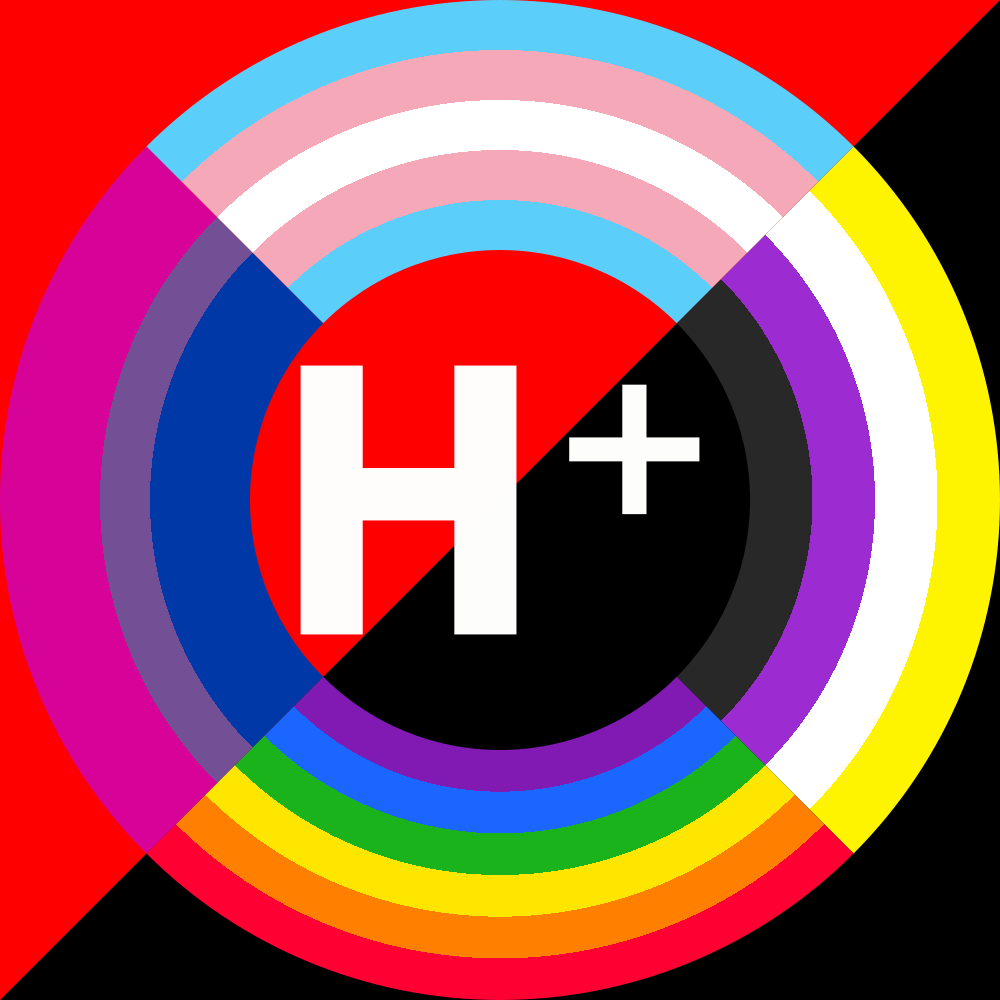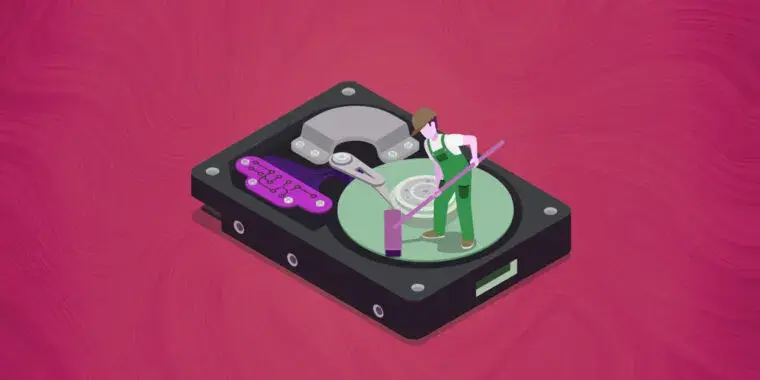
Not a strong case for NYT, but I’ve long believed that AI is vulnerable to copyright law and likely the only thing to stop/slow it’s progression. Given the major issues with all AI and how inequitable and bigoted they are and their increasing use, I’m hoping this helps to start conversations about limiting the scope of AI or application.

It’s pretty apparent that AI developers are training their applications using stolen images and data.
This was always going to end up in the courts.

A human brain is just the summation of all the content it’s ever witnessed, though, both paid and unpaid. There’s no such thing as artwork that is completely 100% original, everything is inspired by something else we’re already familiar with. Otherwise viewers of the art would just interpret it as random noise. There has to be some amount of familiarity for a viewer to identify with it.
So if someone builds an atom-perfect artificial brain from scratch, sticks it in a body, and shows it around the world, should we expect the creator to pay licensing fees to the owners of everything it looks at?

This comparison doesn’t make sense to me. If the person then makes money off it: yes.
Otherwise the question would be if copyright law should be abolished entirely. E.g. if I create a new news portal with content copied form other source, would that be okay then?
You are comparing a computer program to a human. Which… is weird.

Just because it’s weird to you doesn’t make it any less valid.
As a species we sit at the threshold of artificial life, created by us. Seems silly to think that such a monumental jump would not be accompanied by substantial changes in our made up rules of engagement.

Might be a fundamental difference in opinion. I don’t see us anywhere near anything related to artificial life.
What they’ve built there is a product, a computer program and they used other folks data to build it without getting their permission. I also cannot go and just copy and paste source code from all over the internet to build my program. There are licenses attached to it that determine what you can or can’t do with it.
I feel like just because the term “learning” is involved people no longer view it as simply building or programming a system. Which it is.

If the person then makes money off it: yes.
Every idea you’ve ever profited from was inspired by something you saw in the past. That’s my point. There are no ideas that exist entirely within a vacuum, they all stem from something else, we just draw a line arbitrarily and say “this idea is too much like that other idea”. But if you combine 3 other ideas into something that is sufficiently non-obvious (which is entirely relative) then we call it “novel” and “original”.
I think the line should probably be, either it’s a tool and you need to license any work it references, OR it’s conscious, has rights, gets paid, and is a person. I think most tech companies would much rather stay in the former camp, not having to answer any ethical dilemmas if they don’t have to. But on the other hand, the first company to make something that people consider actually “conscious” will make history.
You are comparing a computer program to a human. Which… is weird.
Sounds like you have about 100 years of philosophical discussion, AI research, and scifi to catch up on 😄.

It feels like you are making a computer program out to be more than it actually is right now. At the same time this all isn’t about what that program is doing. It’s about how it was built.

A human brain is just the summation of all the content it’s ever witnessed, though, both paid and unpaid.
But copyright is entirely artificial. The deal is that the law says you have to pay when you copy a bunch of copyrighted text and reprint it into new pages of a newly bound book. The law also says you don’t have to pay when you are giving commentary on a copyrighted work, or parodying a copyrighted work, or drawing inspiration from a copyrighted work to create something new but still influenced by that copyrighted work. The question for these lawsuits is whether using copyrighted works to train these models and generate new text (or art or music) is infringement of those artificial, human-made, legal rights.
As an example, sound recording copyrights only protect the literal copying of a sound recording. Someone who mimics that copyrighted recording, no matter how perfectly, doesn’t actually infringe on the recording copyright (even if they might infringe on the composition copyright, a separate and distinct copyright). But a literal duplication process of some kind would be infringement.
We can have a debate whether the law draws the line in the correct places, or whether the copyright regime could be improved, and other normative discussion what what the rules should be in the modern world, especially about whether the rules in one area (e.g., the human brain) are consistent with the rules in another area (e.g., a generative AI model). But it’s a separate discussion from what the rules currently are. Under current law, the human brain is currently allowed to perform some types of copying and processing and remixing that some computer programs are not.

All intellectual property should be abolish

I agree with the summary of the situation in your first paragraph.
Your second paragraph about sound mimickry, as far as I’m aware, is not accurate. Musicians have been ordered to pay for much less than rote mimickry, even simple things like using the same melody or beat as a backing track have been ruled as infringement. In the US, at least.
And I agree with the 3rd paragraph.
So I believe my original question still stands: should an artificial brain be required to pay licensing fees for everything it sees?

Your second paragraph about sound mimickry, as far as I’m aware, is not accurate.
It is. The recording copyright is separate from the musical composition copyright. Here’s the statute governing the rights to use a recording:
The exclusive rights of the owner of copyright in a sound recording under clauses (1) and (2) of section 106 do not extend to the making or duplication of another sound recording that consists entirely of an independent fixation of other sounds, even though such sounds imitate or simulate those in the copyrighted sound recording.
So if I want to go record a version of “I Will Always Love You” that mimics and is inspired by Whitney Houston’s performance, I actually only owe compensation to the owner of the musical composition copyright, Dolly Parton. Even if I manage to make it sound just like Whitney Houston, her estate doesn’t hold any rights to anything other than the actual sounds actually captured in that recording.

Ahh, TIL, thanks for the explanation.

Then explain how Bobby Prince could literally steal a South Park song to make “Shawn’s Got the Shotgun” to make Doom 2.

I’m not familiar with the situation, but I imagine if Southpark went around suing people for using their stuff, people wouldn’t take them seriously. Virtually everything in Southpark relies on their abuse of Fair Use. Just because it IS infringement, doesn’t mean you have to sue them.
It looks like there are a few other tracks that Bobby Prince is responsible for that made it into Doom. In this interview he states that he made them for fun, labeled the files to not be used in the final game, and was surprised id even had copies. When Romero made the decision to include them in the game, Bobby (who is/was a lawyer apparently) says he was sure they would get sued.

And they didn’t, because back then people didn’t abuse Micky Mouse copyright law.
Yes I know about the MIDIs labeled with
un, meaninguse not. That still doesn’t explain Running From Evil, At Dooms Gate, or literally any other song.

So if someone builds an atom-perfect artificial brain from scratch, sticks it in a body, and shows it around the world, should we expect the creator to pay licensing fees to the owners of everything it looks at?
That’s unrelated to an LLM. An LLM is not a synthetic human brain. It’s a computer program and sets of statistical data points from large amounts of training data to generate outputs from prompts.
If we get real general-purpose AI some day in the future, then we’ll need to answer those sorts of questions. But that’s not what we have today.

The discussion is about law surrounding AI, not LLMs specifically. No we don’t have an AGI today (that we know of), but assuming we will, we will probably still have the laws we write today. So regardless of when it happens, we should be discussing and writing laws today under the assumption it will eventually happen.

This thread is about ChatGPT, an LLM. It is not a general purpose AI.

I’m saying the discussion about AI law. You can’t responsibly have a discussion about law around LLMs without considering how it would affect future, sufficiently advanced AI.

To me there’s a bit of a difference because humans are not controllable and cannot (legally) be slaves. So in the case of this hypothetical artificial brain, that brain could leave and take the profits of it’s work elsewhere, with the creator no longer benefiting.

Yes, it will be interesting if a court is ever receptive to the notion that we’re creating something close to actual “consciousness”, because it does lead to ethical dilemmas very quickly.
I think it’s probably in the tech companies’ best interests to play along with the trademark requirements and treat the AI like a tool for as long as possible.

Yeah I’ve heard a lot of people talking about the copyright stuff with respect to image generation AIs, but as far as I can see there’s no fundamental reason that text generating AIs wouldn’t be subject to the same laws. We’ll see how the lawsuit goes though I suppose.

Neither are infringement. Artists attempting to bully platforms into not training on them doesn’t change the fact that training on information would be black and white fair use if it didn’t have absolutely nothing in common with copyright infringement. Learning from copyrighted material is not distributing it.
If the court doesn’t just ignore the law, which has nothing that could theoretically be interpreted to support the idea that training is infringement in any way, this case will be the precedent that sets AI training free.
And you, as an individual, should want that. Breaking the ability to learn from prior art is still literally guaranteed to disenfranchise the overwhelming majority of creators in all formats, because there are massive IP holders who have the data sets to build generative AI and produce unlimited “free” content, while no individual will be able to do the same because they’ll have nothing to train on. If you think Disney has a monopoly now, wait until they can train AI on 100 years of 95% of TV and movies and no one else can make AI.

Well I hear what you’re saying, although I don’t much appreciate being told what I should want the outcome to be.
My own wants notwithstanding, I know copyright law is notoriously thorny – fair use doubly so – and I’m no lawyer. I’d be a little bit surprised if NYT decides to raise this suit without consulting their own lawyers though, so it stands to reason that if they do indeed decide to sue then there are at least some copyright lawyers who think it’ll have a chance. As I said, we’ll see.

Fair use isn’t relevant.
Copyright law does not prevent learning from copyrighted material. There is no potential infringement for fair use to be applied to. Nothing is being copied and shared.
If they’re suing, they’re doing it because they think they can manipulate a ruling that does not in any way follow the law and because the benefit if they can do so is huge, not because any intelligent rational human being can read the law and possibly interpret anything as infringement. It’s not ambiguous in any way. There can’t be infringement if you don’t distribute someone else’s work.

It seems like you’re working under the core assumption that the trained model itself, rather than just the products thereof, cannot be infringing?
Generally if someone else wants to do something with your copyrighted work – for example your newspaper article – they need a license to do so. This isn’t only the case for direct distribution, it includes things like the creation of electronic copies (which must have been made during training), adaptations, and derivative works. NYT did not grant OpenAI a license to adapt their articles into a training dataset for their models. To use a copyrighted work without a license, you need to be using it under fair use. That’s why it’s relevant: is it fair use to make electronic copies of a copyrighted work and adapt them into a training dataset for a LLM?
You also seem to be assuming that a generative AI model training on a dataset is legally the same as a human learning from those same works. If that’s the case then the answer to my question in the last paragraph is definitely, “yes,” since a human reading the newspaper and learning from it is something that, as you say, “any intelligent rational human being” would agree is fine. However, as far as I know there’s not been any kind of ruling to support the idea that those things are legally equivalent at this point.
Now, if you’d like to start citing code or case law go ahead, I’m happy to be wrong. Who knows, this is the internet, maybe you’re actually a lawyer specializing in copyright law and you’ll point out some fundamental detail of one of these laws that makes my whole comment seem silly (and if so I’d honestly love to read it). I’m not trying to claim that NYT is definitely going to win or anything. My argument is just that this is not especially cut-and-dried, at least from the perspective of a non-expert.

Electronic copies are copies. Copying the story is a copy. You need a license to copy someone’s work. You unconditionally do not need a license to learn from it and use that knowledge for any purpose you wish. There are no laws that could possibly be interpreted to require this.
Derivative works are copies using substantial portions of someone else’s original work. You need a license to adapt a book into a movie because you’re copying their whole story, characters, etc. You don’t need a license to tell a similar story from a similar idea because you are not. Literally everything that has been created in the past 10,000 years is built on the ideas of others. Everything is a derivative work if you think learning from an article is. You’re allowed to summarize copyrighted material and present your own interpretation of it to others. You’re allowed to do so commercially. It isn’t copying.
The New York Times owns their articles. They own their specific packaging of the facts inside. They don’t and unconditionally can’t own the facts themselves. Nothing they own is being copied. Having files in memory is not copyright infringement. It’s the literally guaranteed result of publishing anything digitally.
There is nothing that OpenAI is doing that any law in existence even loosely implies might need a license.

You don’t need a license to learn from a story, but if learning requires you first to make an enduring copy of the story on your laptop then you could be violating copyright.
And neural nets generally require a local enduring copy of their training data, which means they too could be violating copyright.

But there is no one learning from it. It serves as a building block / source material to build these LLMs. I feel like the fact that it’s called learning gives folks the impression that it’s similar to what a human would do.

“AI” isn’t intelligent, but that has literally zero relevance.
Seeing copyrighted material and forming takeaways does not in any way resemble copyright infringement. It’s not the fact that a human is doing so that matters. It’s the fact that no sort of analysis constitutes copying or copyright infringement.

But they aren’t forming take aways from it. They literally used that material to build this system. I also cannot just go around and take arbitrary data from anywhere and use it to build my own program. There are licenses attached to it and I have to be mindful of who’s work I can use to build my system and who’s I can’t use without explicit permission.
Building this system isn’t looking at other folks material and forming take aways from it. It’s literally using that material as input for building the system.

It is similar to what humans do. The principal difference is that the AI tech we have (as of yet) can’t learn how to learn: Those systems come with pre-determined rules to learn, we come with pre-determined rules on how to learn how to learn.
And yes AIs abstract the knowledge they get fed. What they have trouble with is not forgetting how to play soccer when learning how to cook spaghetti as without the capacity to learn to learn they can’t vary encoding of information between topics and everything gets mushed together, new information blindly overwriting unrelated old information.

Since the DMCA, just the circumvention of copyright protection measures is a crime. It’s stupid, but the point is that even if training AI on the data is completely legal, if the data was protected with something that is also used to protect copyright, and you needed to circumvent that to get access even for legitimate purposes, you’ve broken a law.
Copyright has been made obtuse and stupid and damaging to society by big IP holders, it’s just now there’s big corps on the “infringing” side too. This will get interesting.

I’m slightly optimistic. It might slow down the progression of those language models now, but I hope that it becomes a “benign disincentive” in the long run, forcing a shift from LLM to better models.

NPR reported that a “top concern” is that ChatGPT could use The Times’ content to become a “competitor” by “creating text that answers questions based on the original reporting and writing of the paper’s staff.”
That’s something that can currently be done by a human and is generally considered fair use. All a language model really does is drive the cost of doing that from tens or hundreds of dollars down to pennies.
To defend its AI training models, OpenAI would likely have to claim “fair use” of all the web content the company sucked up to train tools like ChatGPT. In the potential New York Times case, that would mean proving that copying the Times’ content to craft ChatGPT responses would not compete with the Times.
A fair use defense does not have to include noncompetition. That’s just one factor in a fair use defense and the other factors may be enyon their own.
I think it’ll come down to how “the purpose and character of the use, including whether such use is of a commercial nature or is for nonprofit educational purposes” and “the amount and substantiality of the portion used in relation to the copyrighted work as a whole;” are interpreted by the courts. Do we judge if a language model by the model itself or by the output itself? Can a model itself be uninfringing and it still be able to potentially produce infringing content?

The model is intended for commercial use, uses the entire work and creates derivative works based on it which are in direct competition.

You are kind of hitting on one of the issues I see. The model and the works created by the model may b considered two separate things. The model itself may not be infringing in of itself. It’s not actually substantially similar to any of the individual training data. I don’t think anyone can point to part of it and say this is a copy of a given work. But the model may be able to create works that are infringing.

uses the entire work
This may not actually be true though. If it’s a Q&A interface, it’s very unlikely they are training the model on the entire work (since model training is extremely expensive and done extremely infrequently). Now sure, maybe they actually are training on NYT articles, but a similarly powerful LLM could exist without training on those articles and still answer questions about it.
Suppose you wanted to make your own Bing Chat. If you tried to answer the questions entirely based on what the model is trained on, you’d get crap results because the model may not have been trained on any new data in over 2 years. More likely, you’re using retrieval-augmented generation (RAG) to select portions of articles, generally the ones you got from your search results, to provide as context to your LLM.
Also, the argument that these are derivative works seems to be a bit iffy. Derivative works use substantial portions of the original work, but generally speaking a Q&A interface like this would be purely generative. With certain carefully-crafted prompts, it may be able to generate portions of the original work, but assuming they’re using RAG, it’s extremely unlikely they would generate the exact same content that’s in the article because they wouldn’t be using the entirety of the article for generation anyway.
How is this any different from a person scanning an article and writing their own summary based on what they read? Is doing so a violation of copyright, and if so, aren’t news outlets especially notorious for doing this (writing articles based on the articles put out by other news outlets)?
Edit: I should probably add as well, but search engines have been indexing and training models on the content they crawl over for years, and that never seemed to cause anyone to complain about copyright. It’s interesting to me that it’s suddenly a problem now.

That’s something that can currently be done by a human and is generally considered fair use.
That’s kind of the point though isn’t it? Fair use is only fair use because it’s a human doing it, not an algorithm.

That is not actually one of the criteria for fair use in the US right now. Maybe that’ll change but it’ll take a court case or legislation to do.

I am aware of that, but those rules were written before technology like this was conceivable.

I think there’s a good case that it’s transformative entirely. It doesn’t just spit out NYT articles. I feel like saying they “stole IP” from NYT doesn’t really hunt because that would mean anyone who read the NYT and then wrote any kind of article at some point also engaged in IP theft because almost certainly their consumption of the NYT influenced their writing in some way. ( I think the same thing holds up to a weaker degree with generative image AI just seems a bit different sometimes directly copying the actual brushstrokes etc of real artists there’s also only so many ways to arrange words)
It is however an entirely new thing, so it’s up to judges for now to rule how that works.
- AnarchoYeasty ( @AnarchoYeasty@beehaw.org ) 7•2 years ago
I have it on good authority that the writers of the NYT have also read other news papers before. This blatant IP theft goes deeper than we could have ever imagined.

Yeah, we need to get this in front of the Supreme Court.

I hope not. Not a big fan of propriety AI (local AI all the way, and I hope people leak all these models, both code and weights), but fuck copyright and fuck capitalism which makes automation seem like a bad thing when it shouldn’t be ;p nya

Yes, because AI and automation will definitely not be on the side of big capital, right? Right?
Be real. The cost of building means they’re always going to favour the wealthy. At best right now were running public copies of the older and smaller models. Local AI will always be running behind the state of the art big proprietary models, which will always be in the hands of the richest moguls and companies in the world.

Be real. The cost of building means they’re always going to favour the wealthy. At best right now were running public copies of the older and smaller models. Local AI will always be running behind the state of the art big proprietary models, which will always be in the hands of the richest moguls and companies in the world.
Distribution of LoRA-style fine-tuning weights means that FOSS AI systems have a long term advantage because of compounding effects. .
That is, high-quality data provided for smaller models and very small “model finetuning” weights, which is more accessible to open groups, are sufficiently accessible and modular in their improvements to a given model that the FOSS community can take and run with it to compete effectively with proprietary groups from even a single leak.
Furthermore, smaller and more efficient models which can be run on lower end hardware also avoid the need to send off potentially sensitive data to AI companies and enable the kinds of FOSS compounding effect explained above.
This doesn’t just affect people who like privacy, but also companies with data privacy requirements . - as long as the medium models are “good enough” (which I think they are ;p), the compounding effects of LoRA tuning and better data privacy properties, and further developments which already exist in research papers towards much lower weight-count models and training mechanisms capable of greater weight efficiency to induce zero-shot learning, mean local AI can compete with proprietary stuff. It’s still early days but it is absolutely doable even today with fairly low-end hardware, and it can only get better for the reasons provided.
Furthermore, “intellectual property” and copyright stuff have an absolutely massive and arguably even more powerful set of industries behind them. Trying to strengthen IP stuff against AI means that AI will only be available to those controlling these existing IP resources and it’s unending stranglehold on technology and communication and people as a whole :/
AI I think is also forcing more and more people to look and reevaluate society’s relationship with work and labour. And frankly I think that this is super important, as it enables a greater chance of more radical liberation from the existing structures of not just capitalism and it’s hierarchies but the near-mandatoriness of work as a whole (though there has already been some stuff like this around the concepts of “bullshit jobs”).
I think people should use this as an opportunity to unionise and also try and push for cooperative and democratic control of orgs ., and many other things that I CBA to list out ;3

No leaks necessary; there are a number of open-source LLM’s available:
https://github.com/Hannibal046/Awesome-LLM#open-llm
The key differentiator between these and proprietary offerings will always be the training data. Large amounts of high-quality data will be more difficult for an individual or a small team to source. If lawsuits like this one block ingestion of otherwise publicly-available data, we could have a future where copyright holders charge AI builders for access to their data. If that happens, “knowledge” could become exclusive to various AI platforms much the same way popular shows or movies are exclusive to streaming platforms.

the opensource models are so bad that they give you responses out of context. they have completely random responses.

Sam Altman stated that the cost of training GPT-4 was more than $100 million, so I think they’ll survive this (just ask daddy Microsoft for more money). Not sure if the figure includes cost of obtaining the training data though.
It’s pretty funny if the thing that would prevents AI from taking over human jobs is the copyright law though.

It is funny, bureaucracy definitely slows humanity progression
- intensely_human ( @intensely_human@lemm.ee ) 2•2 years ago
While we play civil law, the world plays realpolitik.
Chances are good this legal challenge against AI is the work of our geopolitical rivals.

I’d be careful around interpreting any challenge to big business as the doing of hostile foreign powers. That line of thought rationalizes corporations being above the rule of law, which is kinda fascistic.
- intensely_human ( @intensely_human@lemm.ee ) 1•2 years ago
I’m not equating any and all with that, just this one instance because the discussion here is about a technology that will be a deciding factor in warfare.
🤖 I’m a bot that provides automatic summaries for articles:
Click here to see the summary
The result, experts speculate, could be devastating to OpenAI, including the destruction of ChatGPT’s dataset and fines up to $150,000 per infringing piece of content.
If the Times were to follow through and sue ChatGPT-maker OpenAI, NPR suggested that the lawsuit could become “the most high-profile” legal battle yet over copyright protection since ChatGPT’s explosively popular launch.
This speculation comes a month after Sarah Silverman joined other popular authors suing OpenAI over similar concerns, seeking to protect the copyright of their books.
As of this month, the Times’ TOS prohibits any use of its content for “the development of any software program, including, but not limited to, training a machine learning or artificial intelligence (AI) system.”
In the memo, the Times’ chief product officer, Alex Hardiman, and deputy managing editor Sam Dolnick said a top “fear” for the company was “protecting our rights” against generative AI tools.
the memo asked, echoing a question being raised in newsrooms that are beginning to weigh the benefits and risks of generative AI.

Watch out bot, the Times might come for you next…

While my gut reaction is “yeah, make them pay for this art and these articles they’re stealing to train the model” - I don’t think copyright is going to actually win the creators any money for their work this time.
I’d rather it remains a wild west. and copyright loses.

Everyone wants they’re piece of the pie. I just want AI to evolve to the point we can use it to create real innovation. But we’ll never get there with all these greedy removed.

So you’d rather some of the world’s biggest corporations get to monopolise AI profits (meanwhile pushing out some very dodgy ‘creations’ including b******* text masquerading as truth) while the people whose actual creative labour it is built on get nothing? Who’s the real greedy ones here? Seems to me it’s the likes of Google and OpenAI.

When little people torrent they get prosecuted, when Google steals all the text they can get their hands on, it gets legalised…

I read an article in NYT and then I used the information to make money. Come sue me.

I have trouble seeing this happening, and if it does someone is for sure going to secretly preserve the weights. It’s just such a baby-out-with-the-bathwater situation.


